Arithmetic Statistics in Automorphic Forms and Analytic Number Theory
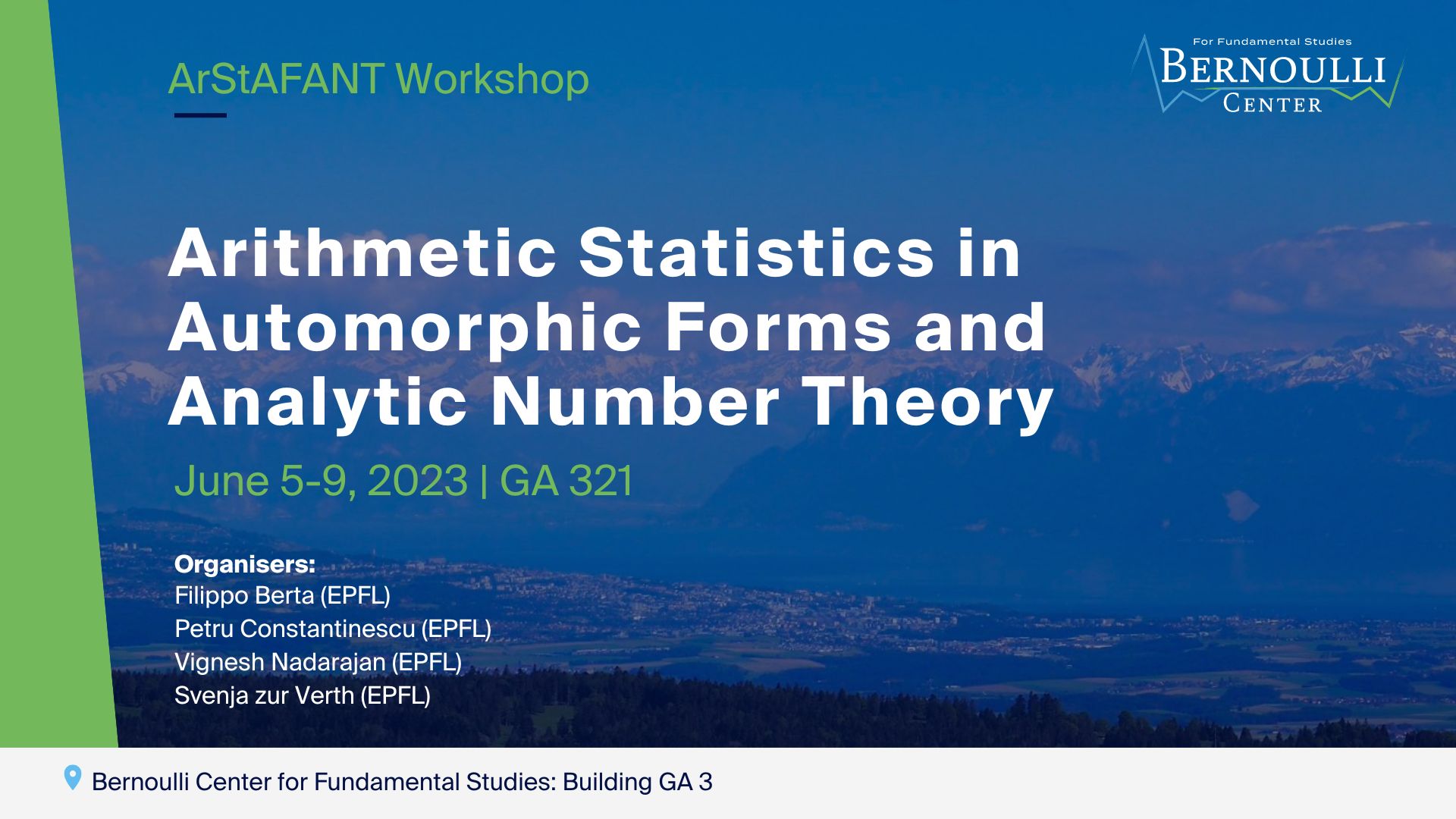
This workshop is meant as an opportunity for community building and fostering collaborations between early career researchers (up to Post Doc) in the field of analytic number theory and automorphic forms. Participants are strongly encouraged to give a talk. Format: The workshop will take place over five days. Every day there will be one plenary talk given […]
Dynamical low-rank approximation: New horizons
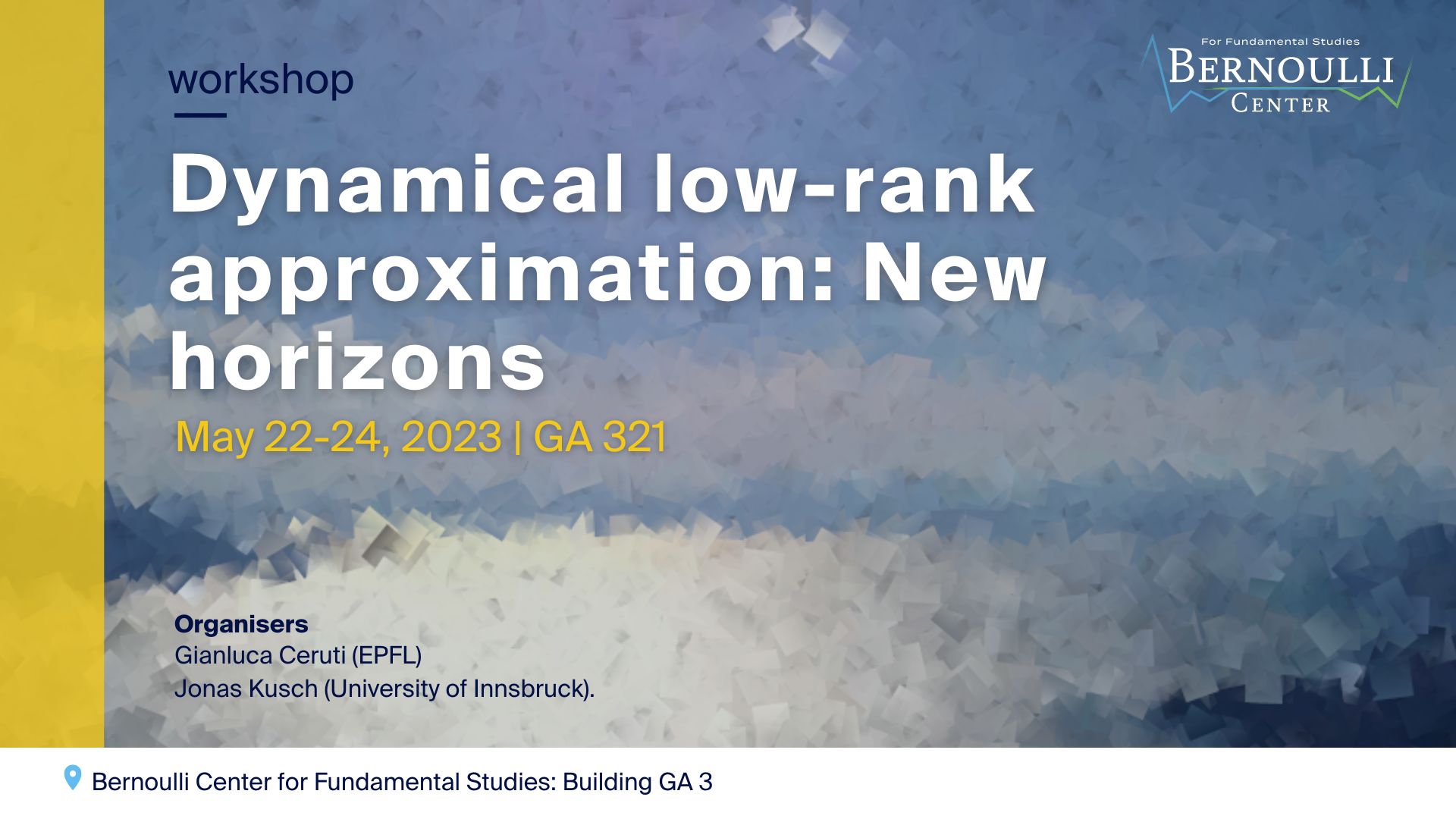
We are glad to announce a workshop dedicated to the research field of dynamical low-rank approximation. The present event aims at establishing and strengthening communication across international and interdisciplinary boundaries, to connect applied and theoretical researchers, and to communicate newly developed methods as well as requirements that arise in applications from different areas. The workshop […]
Structure preserving numerical methods for partial differential equations
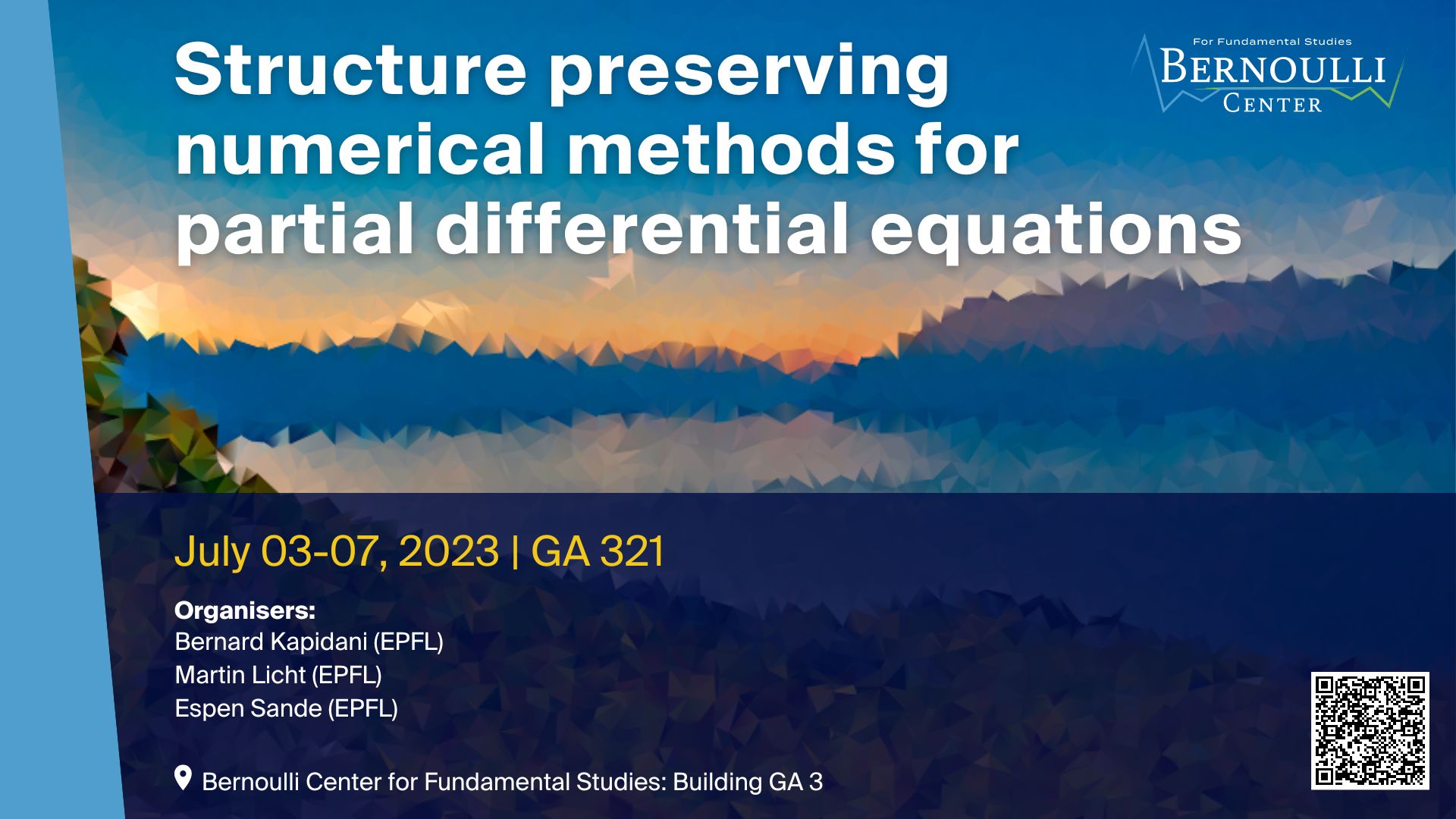
The workshop will bring together leading experts and junior researchers on structure-preserving numerical methods for partial differential equations. Topics of discussion will include: discrete de Rham complexes over manifolds rigorous a priori and a posteriori error analysis conservation laws in time applications in electromagnetism, elasticity, and relativity Keynote speakers: Douglas Arnold (University of Minnesota) Annalisa […]
Lattices Meet Hashes: Recent Advances in Post-Quantum Zero-Knowledge Proofs

Zero-knowledge proofs are a powerful cryptographic tool which has found numerous real-world applications in e.g. confidential transactions, anonymous credentials, e-voting and blockchain. Recently, due to the significant progress in building quantum computers, there has been tremendous interest in constructing such protocols from quantum-safe assumptions. The goal of this workshop is to share the current state-of-the-art […]
WinCompTop: Women in Computational Topology 3
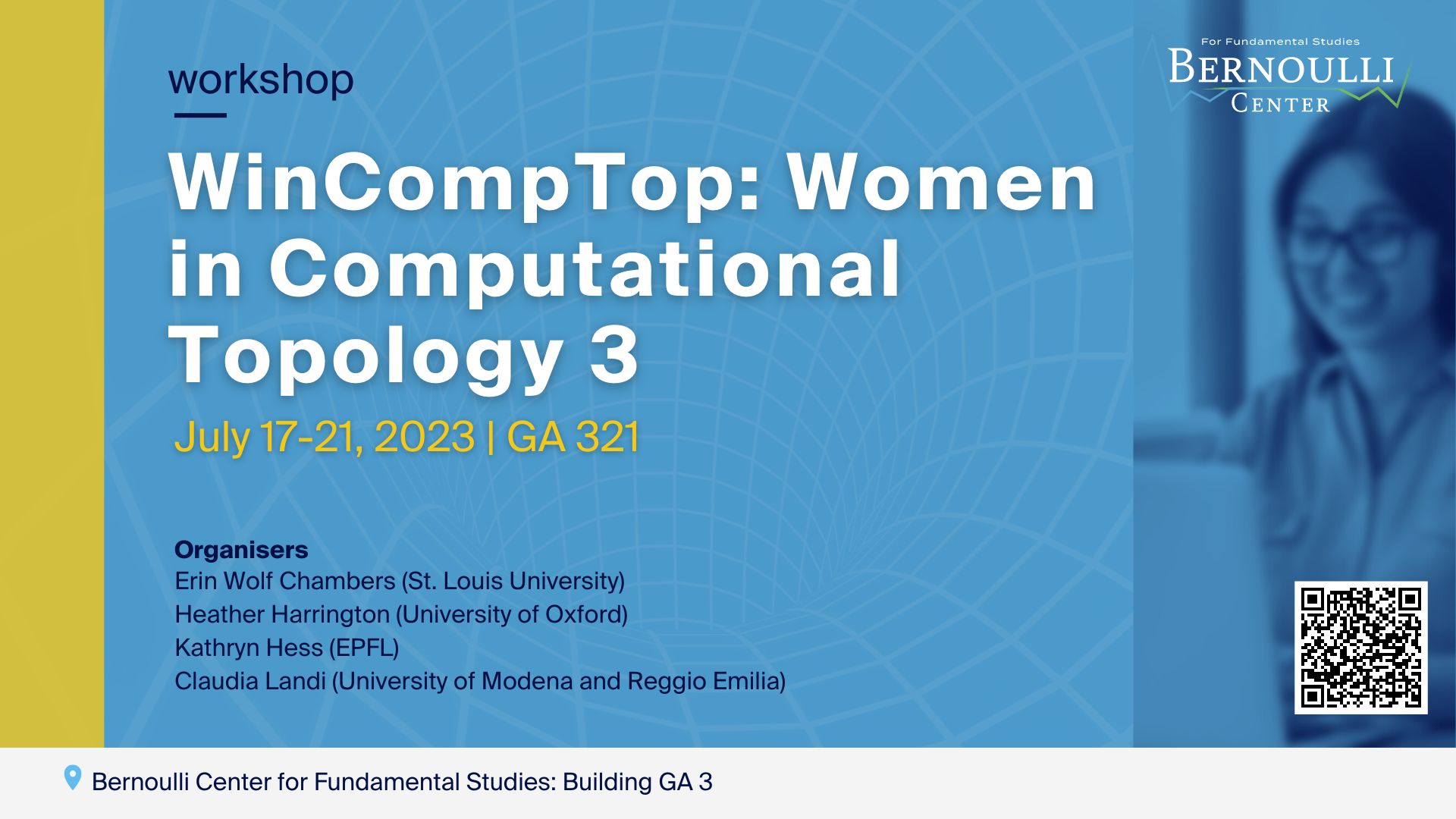
BERNOULLI CENTER Lausanne (Switzerland) JULY 17-21, 2023 Scientific Overview The Bernoulli Center at EPFL (Switzerland) will host the third workshop for Women in Computational Topology. These workshops are designed to strengthen the computational topology community by bringing together women as well as gender-diverse researchers at various stages in their careers (from graduate students to senior researchers) and from […]
Young Researchers in Mathematics Program
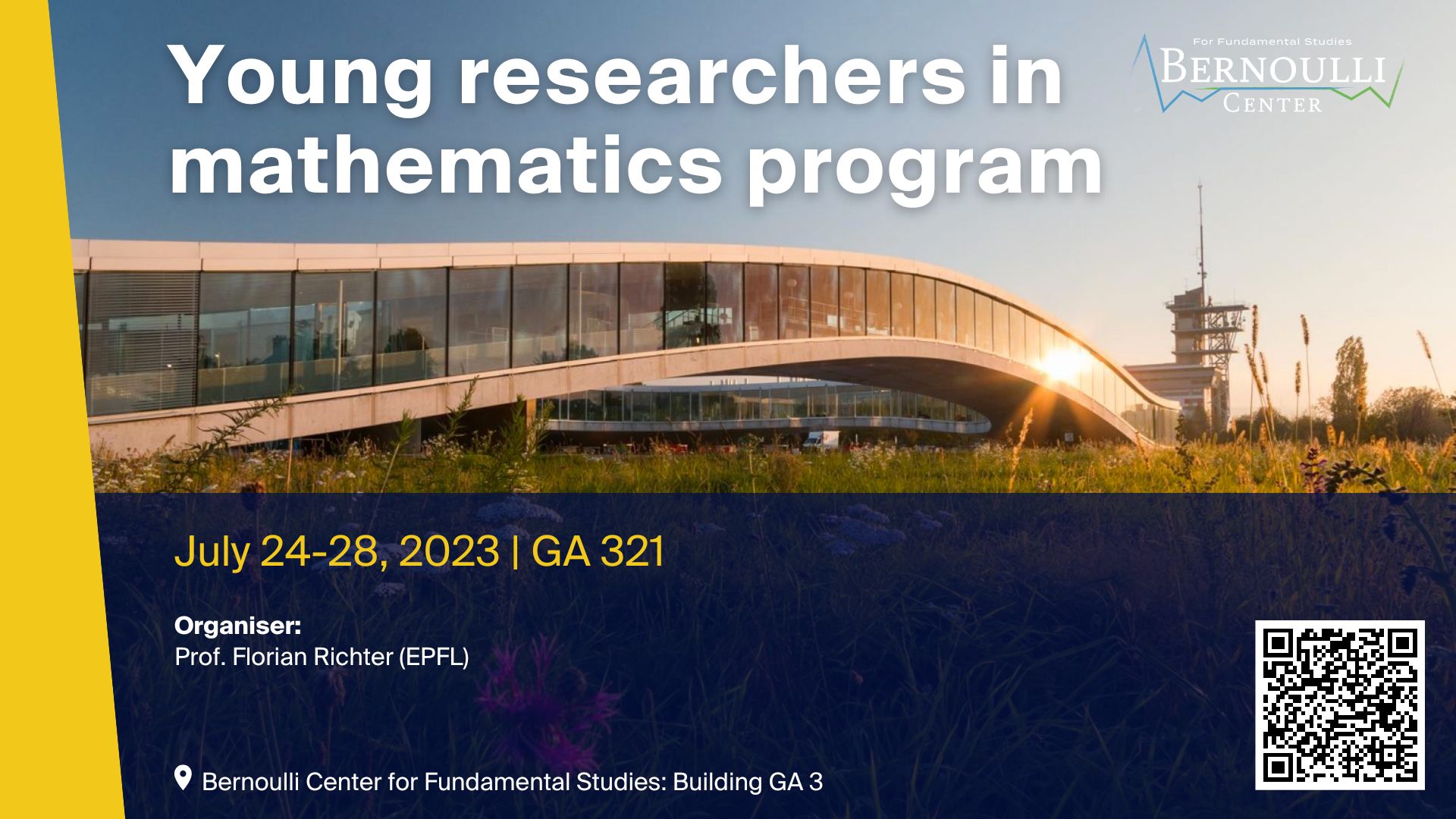
The Bernoulli Center for Fundamental Studies is a world-renowned research institute located in Lausanne, Switzerland, facilitating research, outreach, and education in mathematics and the mathematical sciences. The Young Researchers in Mathematics Program is a new and exciting summer research program hosted by the Bernoulli Center, offering a unique opportunity for students in mathematics to gain […]
Causality to get Population Health Sciences Right
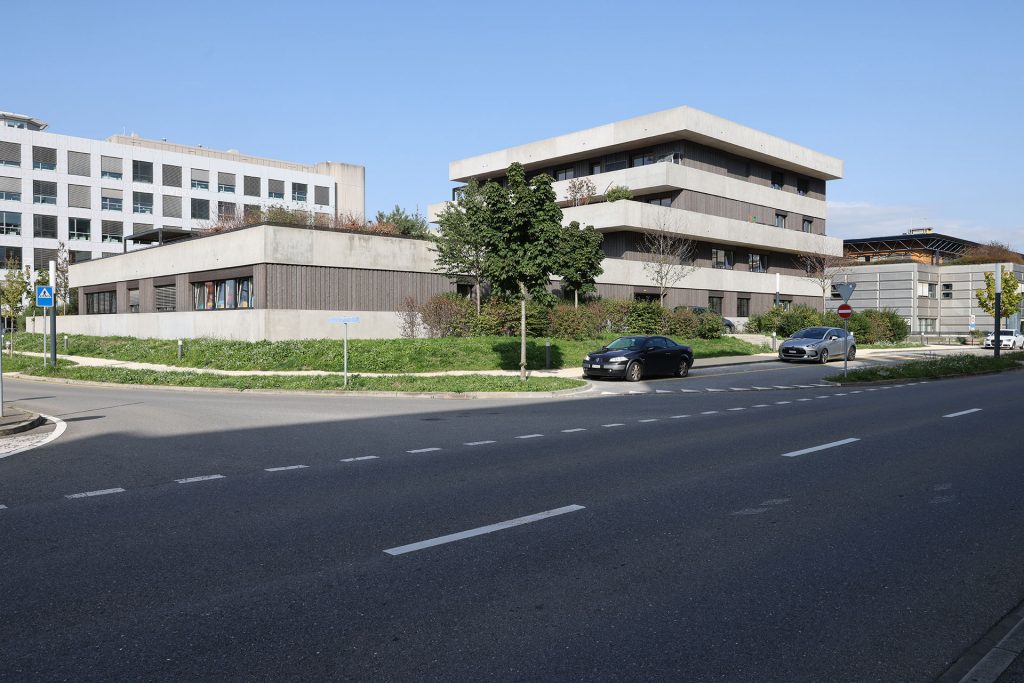
The goals of the symposium are to create a space to network and meet researchers working in the field of causal inference in Switzerland, to have the opportunity to discuss the work of young researchers and to meet Jay Kaufmann visiting from McGill University. Confirmed participants: Jay Kaufman (Department of Epidemiology, McGill University) Arnaud Chiolero […]
Biological Evolution Across Scales: Mathematical modelling and statistical inference

A 5-day interdisciplinary workshop addressing mathematical modelling, statistical inference and computational approaches in biological evolution. We aim to provide a collaborative environment and to foster informal discussions and dialogue between different communities. The program will include four thematic blocks: Probabilistic models, Structures and interactions, Inference, and Sequence data. Each block will include one keynote talk and invited talks, and […]
Discrete Random Structures
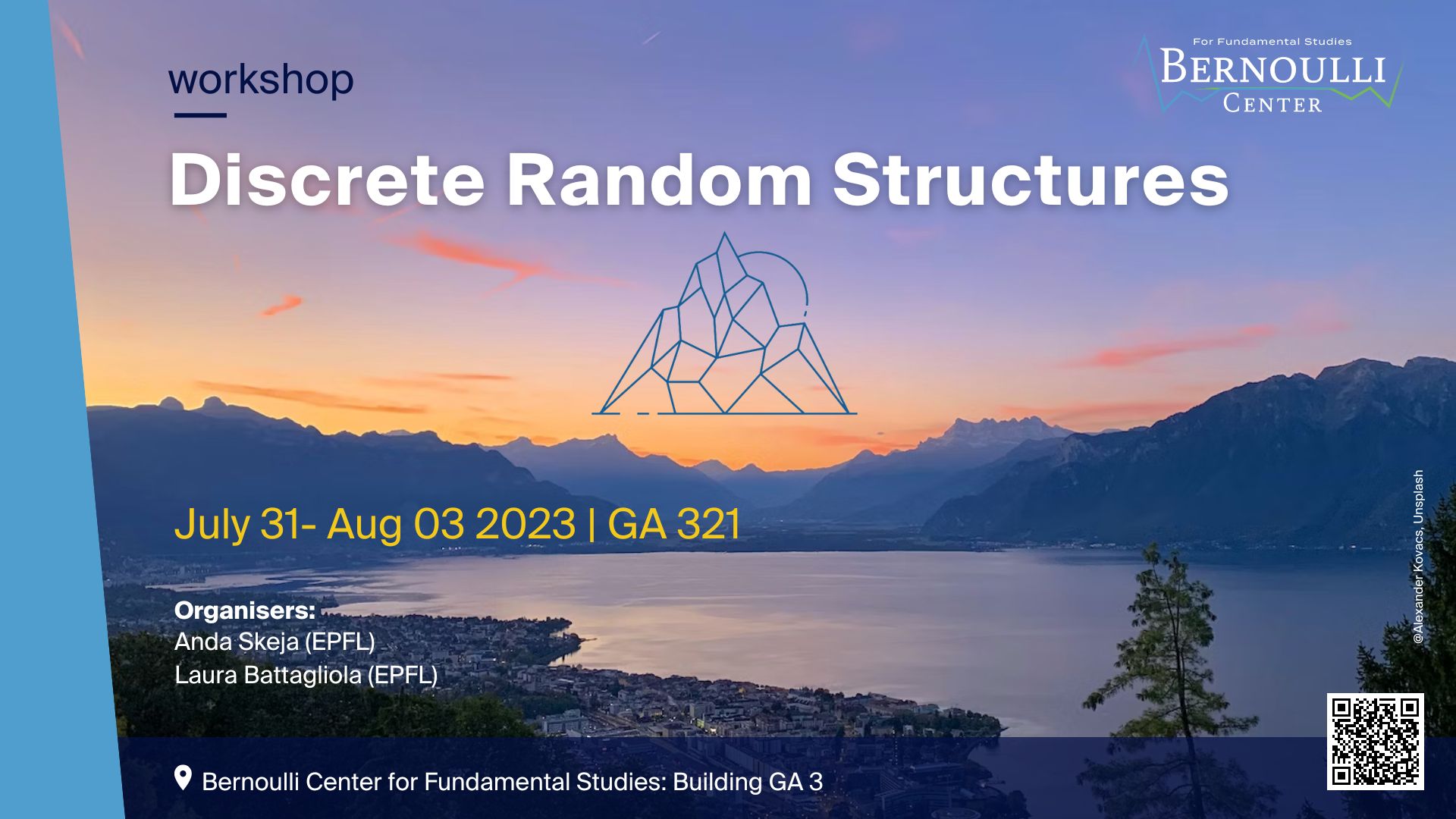
This workshop brings together experts in combinatorics, probability theory, statistics, information theory, and computational topology sharing a common interest: graphs. Key forms of discrete-valued data, graphs extend to flexible and complex generalisations, such as hypergraphs and simplicial complexes. Their study requires a multidisciplinary arsenal of tools from the aforementioned disciplines. This rich area of research […]
Workshop on « Algorithms with predictions” also known as « Learning-augmented algorithms”

Algorithms with predictions, also known as learning-augmented algorithms, is an emerging field of research at the intersection of theoretical computer science and machine-learning. It looks to address the following question: How to use imperfect predictions in a robust way – retaining worst-case guarantees of classic algorithms – yet achieve optimal performance when the predictions are accurate? […]

